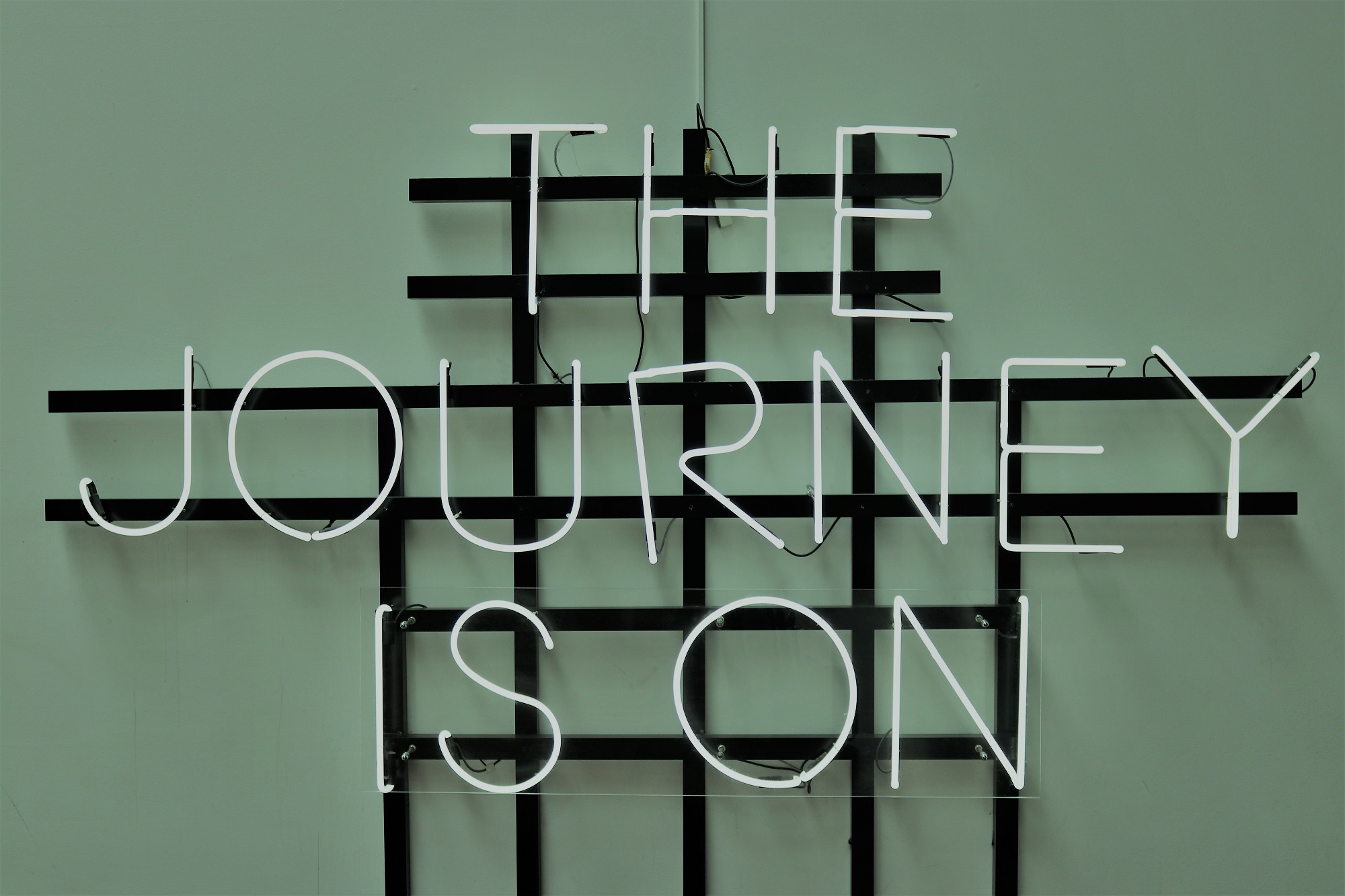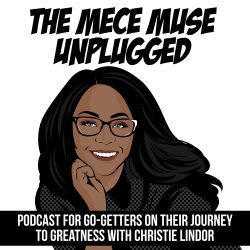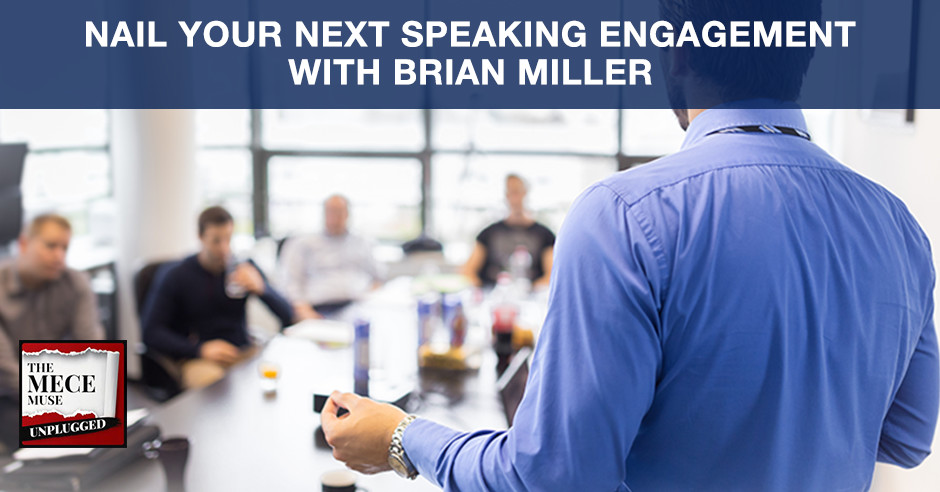Quick wins interview with Brian Miller, a professional speaker, TEDx coach, and magician is globetrotting magician turned speaker who works with organizations, students, and educators who want to create an environment in which everyone can feel heard, understood, and valued. Brian’s TEDx talk is one of the became a global sensation, now viewed, and shared 3 million times worldwide.
In today’s episode, Brian shares his career journey as a magician, discusses his TEDx journey, and provides helpful tips/tricks on how you can prepare to nail your next speaking engagement.
In this episode, I also provide a special announcement about the podcast show.
Listen to the Episode Here:
Podcast: Play in new window | Download | Embed
Subscribe: Apple Podcasts | Email | TuneIn | RSS | More
I’ve got a lot of cool announcements to share with you and they are long awaited. I’ve been talking and thinking about this for some time. I want to actually take a moment and introduce our guest that we have on the show. We have Brian Miller on the show. A little bit about Brian, he is a professional speaker, he’s a TEDx coach and he’s also a magician. In this episode, we’re going to connect with Brian and help you be able to get some tips and tricks if you are preparing for a global speech or just a regular speaking engagement with clients in front of a conference. Brian is going to give some really cool tips.
Brian was one of my speaking coaches when I did a TEDx Talk in Zaragoza, Spain. We’re going to talk with Brian and have a really cool conversation about how you can really take your speaking game to the next level. I’ve been doing a lot of soul searching about the show. For those that may have not listened to some of the past episodes, when I first started the show, I mentioned and I continuously called it a pop-up podcast because I wasn’t sure how long I was going to be doing the show.
I originally thought I was going to do it for a couple of months and try it out. I’ve never done podcasting before. By nature, I’m usually more of an introvert, but I said, “I’m going to get out of my shell.” I’m going to try this out and really share my perspectives and really help consultants on their journey to greatness. I was able to push forward and it’s been such an amazing ride. I’ve got listenership across the world, which is fantastic. I’ve been doing some soul searching.
I’m always getting feedback about the show from listeners. One thing that I continue to hear, which I found fascinating, was that while my guests are awesome and the interviews are insightful and really helpful, a lot of my listeners are telling me they want to hear more from me. They want to hear me. They want to hear some of my stories, and hear some of my ideas and insights, which is flattering. When I created the show, I did make it for it to be a variety show. I do share perspectives from time to time, but people want to hear more from me. I’ve gotten that message loud and clear.
The other thing that I’ve also realized in having the podcast and this pop-up platform, is that now that I’m used to podcasting, I enjoy it. It’s something that I can see myself doing for a long time. I want to talk about more things. I love consulting, and that’s definitely one of the things that I’m very passionate about. I’m passionate about a lot of other things and I’m sure all of my go-getters out there are as well. I feel like this platform, while it’s been really awesome, I really want to expand it out a little bit more. I want to do something a little different, bring more of my personal style into it, talk about consulting, and a whole other host of topics that are trending, that are interesting, that I definitely want to bring insights and help you along your journey to greatness.
I thought about this long and hard. I’ve got good news and bad news, let me preface it that way. I’ll start with the bad news. People sometimes want the bad news first. It is not really bad. The bad news is that I have decided to end the show. The MECE Muse Unplugged pop-up podcast will end, it was like an experiment. I think it was a very successful experiment given the amazing people I’ve had chance to meet, the amazing stories that are part of the impact, the information we’ve shared, the amazing listenership and reach that we’ve been able to create throughout the world.
I never thought the show would ever get to this point, for that I’m so grateful for the opportunity that you all put in me. Hearing the insights, people wanting to be on the show, it’s been a pretty awesome ride. That was the so-so bad news, and I don’t think it’s bad news because the good news is, I’ve decided that I’m going to start a new podcast show. I’m going to take a break and want to think through what my platform will be. I’ll still talk about consulting. I’ll still talk about a lot of other topics.
The type of consulting work I do, the people, human capital space, organizational change management and culture, talent development and digital transformation work. I want to talk about some of those topics, but I also want to talk about some of the current trending topics. There’s so much going on in the world. I really want to talk about those things as well. I want to bring my perspective. I’m going to take a step with you all. I’m going to bring a little bit more of myself and my perspective, as people have asked, and I hope you’ll appreciate that.
I don’t have a start date for the new show yet. I’m still thinking it through. I still need a name. I was thinking about calling the show, the Christie Lindor Show. I feel like that’s safe. I’m going to ask you all to help me come up with a name for my new podcast show. Feel free to drop me a line, MECEMuseUnplugged@Gmail.com, if you’ve got some ideas for names and suggestions of the show.
It’s going to be across the board, talking about different topics, not just consulting but something that is more for me to rebrand, reposition the show a little differently. I’m ending the MECE Muse Unplugged Podcast. We’re going to start up a new podcast show. Give us your thoughts, topics you want to hear, conversations you want to hear, guests that you may want to see on the show that we didn’t have before. Let me know what you’re thinking. I’m going to continue to formulate my plan and I’m hopeful by the time we get to the end date of MECE Muse Unplugged show, I’m hopeful I’ll have more information about where the show is headed. Thank you so much. I hope you enjoy my conversation with Brian. Check out my new TEDx Talk. Let me know what you think.
Interview with Brian Miller
Brian, welcome to the MECE Muse. How are you doing?
Thanks so much for having me. It’s a pleasure to be here and be on the receiving end after we’ve spent the last few months with me coaching you. I just get to be here on the passenger seat for a moment.
Go-getters, you will really enjoy my conversation with Brian and all the things he has to share. He has such an interesting background. Take a moment to introduce yourself to the go-getters of the MECE Muse Unplugged.
My name is Brian Miller. I work with people and organizations who want to engage and entertain their guests. That’s where I built my career as a magician. I was a professional magician at sixteen. That’s when I founded my business legally and it’s literally all I’ve ever done since. I put myself through College of Magic and then just kept doing it. I’ve never had another job, apart from McDonald’s when I was sixteen years old. I did that for a year and I quit the day that I realized I could make more money in an hour doing magic than I was making in a week over that hot grill at McDonald’s even at sixteen. I pursued magic as a career and really got to build it to a national scale. I put in the work for a lot of years and learn the business and was a nationally touring comedy magician until I started getting invited to give speeches, and I had never wanted to be a speaker at all.
I never imagined being a speaker, I’d never even thought about it. At the beginning, I would get invited to speak on whatever topic that event wanted me to speak. Come and speak to our group about success, come speak to our group about deception. When I did my TEDx Talk, it blew up. It went viral. If you know my name at all, and you probably don’t, it’s from my TEDx Talk. It’s just about to hit three million views. It went viral in its first six months, it went to a million views right away, and that gave me a global platform where I started traveling internationally as a professional speaker where my topic is communication and connection. I’m a communications specialist. What I work with audiences and organizations, is how to create meaningful connections with the people in your life by learning to take on other perspectives. That’s my little story.
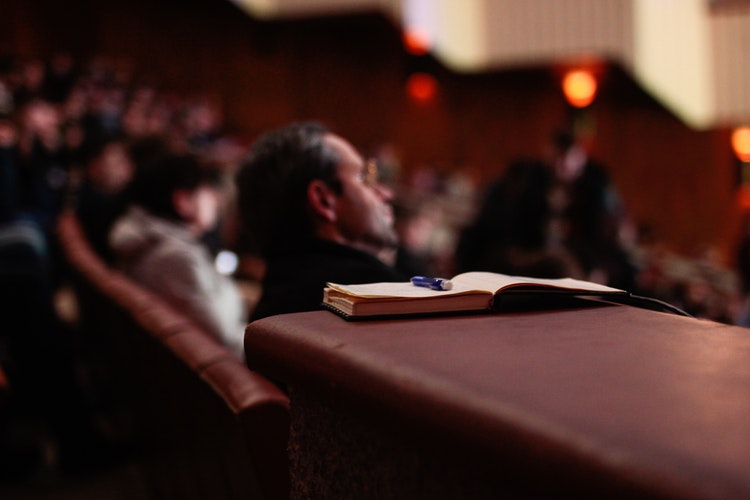
Such a fascinating journey, Brian. You mentioned that transition from working at McDonald’s. Full disclosure, I actually don’t share this with a lot of people now everyone will know, but my first job when I was fourteen years old, was at McDonald’s too. I know firsthand about that hot grill. That’s so funny. However, we pivot really quickly. How did you figure out that being a magician was your thing? Can you share a story of that a-ha moment?
Full disclosure, the a-ha moment was money, initially. I was sixteen, and again I was working in the grill at McDonald’s and it was fine. I didn’t hate it, but at that time I had already been doing magic. I’ve got my first paid magic gig when I was thirteen or fourteen. Some local youth group offered to pay me $20. They said, come do a magic show for our group. I did it, and that was actually the first a-ha moment. That was my light bulb, when I realized for the first time I could get paid to do magic.
I was fourteen, and that idea had never existed. Magic was just this fun thing I did for me and my friends. It was just a hobby. That wasn’t a job, but then someone offered to pay me to do it and that just stuck. That first year at McDonald’s I was doing occasional house parties with magic and some local events. One of them, I think it was a maybe a mall, somebody paid me, I think it was in the realm of $200 to go do magic for an hour or two at their events.
That blew my mind, that I could get paid that much money to do card tricks. I was just goofing around, it was just magic. It was the moment when I realized there was something to this. People were willing to pay for this. It wasn’t just a hobby, but to answer your more specific question, the real a-ha moment was actually the first week of my freshman year of college. I was at college and it was the first week. I had just met all the new people and we were in the dorms, and it was a totally new experience.
The best year of your life for most people. For me as well, apart from getting married and all that. What happened was a bunch of my friends said, “Let’s go see the comedian.” I said, “What comedian?” They said, “There’s a comedian on campus tonight.” I said, “Who is it?” They told me his name and I had never heard of him. I said, “What do you mean there’s a comedian? I’ve never heard of him.” At that time, we grew up before social media.
We are in the same boat here. We came up before social media, before YouTube, before Google. I didn’t know that you could make a living as a comedian, or a magician, or a juggler. I thought you had to be famous to make a living doing that. Jerry Seinfeld’s a comedian. Of course, he is because he’s famous. David Copperfield’s a magician because he’s famous. What I didn’t realize, because we didn’t have the access to Google, YouTube and social media, is that there are thousands and thousands of full-time entertainers making good living, supporting their families, and you’ll never hear of them.
We went and saw this comedian, who I had never heard of, who my campus had spent money to fly in from halfway across the country. Apparently, he was somebody and he was hysterical. He was amazing and he was just an honest-to-good, working class comedian. That is when I realized, magic was an actual career option. That was a moment I realized you could actually do this. You didn’t have to be famous.
I have the same belief system, Brian. I never thought that there was this gray area. I always thought the extremes, like yourself, you had to be famous to be up. I think of a number of different roles that people have, you’ve got to be famous to do that. Thank you for opening up that world of possibility. I’m sure others may have as well.
It really was a powerful moment for me. It’s funny because one of the most common things people say, when I meet people in a social situation, or at a party, or even when I’m working, when I’m at a show, backstage or doing a show and people will meet me, and they’ll say, “You’re a magician.” I’ll say, “Yeah.” They’ll say, “What’s your day job?” People still say that. They say that even when I’m literally at the show. It just happened recently. I was halfway across the country, it was somebody from the board that flew me in. They were paying big bucks for me to be there and they said, “What’s your day job?” I said, “This is it. I do this for a living.” They said, “Yes, besides magic, what’s your other thing?” “Besides magic, I’m a professional speaker, but I know that’s not what you’re asking right now because that seems equally ridiculous.” We get embedded from childhood. Right away we get embedded that 9 to 5, you have to clock in, clock out for someone else’s vision.
That’s the only real job. The world changed so much, those jobs hardly even exist anymore. Most people in some capacity are working for themselves, even if they’re clocking in and out for somebody else. Millennials, that term that we all hate. That group, they’re coming up in a very different work environment, at least in America. The idea that you don’t get into a company and stay there for 40 years and then retire. You’ve changed jobs every couple of years. You try new roles within the company, you go out for yourself for a few years, and then you come back. That idea of creating your own world, pursuing your vision. It’s not just reserved for people like magicians anymore. I think everybody has that opportunity now. It’s really exciting.
I would totally agree with that because to your point, people used to just have one or two jobs. That was the only thing that you had. I remember back then, if someone had a resume, and they had two, three jobs on their resume, they have a job hop. They only stuck a year here, a year there. That used to be very taboo. It’s funny to say that now because I think people expect people to job hop and people expect there to be a lot more transitional type of work. I want to say the average worker nowadays has between twelve, fifteen to twenty jobs in a lifetime. As opposed to before, where it was one or two tops.
I agree and I think that it’s so important that you do. I believe, and I preach this all the time, I believe your experiences, not your results, define who you are. I think that life is about gaining experiences and the more experiences you get, you are not going to succeed at all of them. It’s just not possible. It’s a cliché, but it’s letting go of that fear of failure and understanding. What we’ve all heard that failures are the stepping stones to success. Every time you get a new experience, success will come. Results come and results vary. I say that all the time. You can do everything right and fail. We have all been in a situation where you look back and you go, there’s literally nothing I could have done different or better. You can also do everything wrong and succeed in spite of it, just by luck, just by chance. I tell people, don’t waste your energy trying to avoid failure, pursue new experiences. That’s really the path.
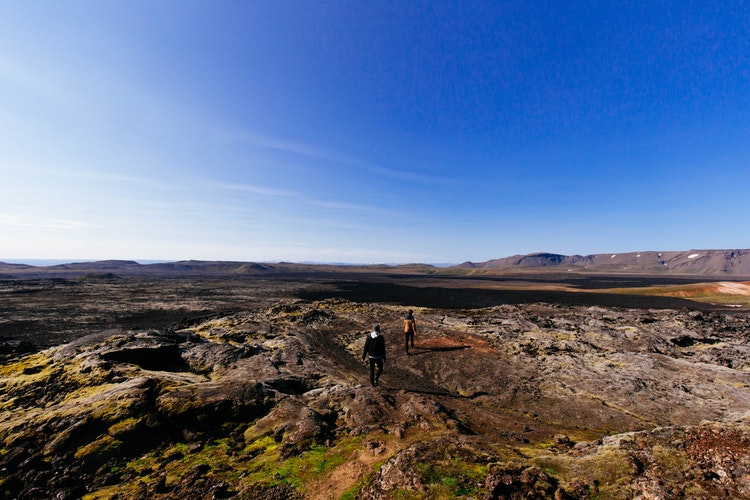
I want to pivot. You’ve built a successful career as a magician. Tell us how you know you had the opportunity to give your TED Talk and what your talk was about.
My TEDx Talk is called, How to Magically Connect with Anyone. It’s about how magicians have mastered the ability to take on other perspectives in order to create wonder and connect with the audience. The magician is the only person who cannot see the magic because we know how the trick works. I can’t see the magic because I’m literally looking at it visually from the wrong perspective. I see the secret when I’m doing it and I can’t experience it because I’m creating it. In order to create magic, magicians must put ourselves in the perspective of the audience. Magicians intuitively master this technique that psychologists call perspective taking, which is the ability to see the world from the point of view of another person.
What my platform has become as a speaker working with organizations, businesses, conferences, keynotes, but also working with students and educators, doing some youth motivational speaking. My platform has become all about how to take on other perspectives, to create better and more meaningful relationships with the people in your life, personally and professionally. The idea is to be happier at home and more successful at work, but also to be happier at work and more successful at home. I think people don’t get that second one very often.
Perspective taking, I think is such a critical skill set. What are some ways that you’ve been able to really build that muscle? Any hacks or tips you can share?
I teach two things in the TEDX Talk itself, and I teach a whole lot more in my live presentations, workshops, keynotes, that whole thing. The first and foremost, the easiest way to take on somebody else’s perspective, because it sounds hard, it sounds like mind reading. How could I ever get into their point of view? Their perspective? I’m talking about emotional perspectives. How does somebody feel about our interaction? That’s the question that we’re after. It’s a hard question to answer, so the way to answer it, the way to do it, is just ask.
Ask people questions. I say this all the time. Too often we’re afraid to ask people questions because we think it will be rude or that they won’t want to answer. When you ask meaningful and relevant questions, don’t memorize a list of conversation starters and rattle them off. We can all detect when that’s happening. It’s so obvious when someone is just going down a list of prearranged questions. When you ask meaningful and relevant questions to people, you’re never going to find out the entirety of their perspective, but you will be able to bridge the gap and figure out how to adjust your tone, your demeanor, and even your language to help them feel understood and make a connection.
I want to go back to that when you said it hit millions of views. When did you realize that your talk was a hit?
It wasn’t immediate actually. I thought it was all for naught. The first day, I’ve got about 1,100 views because I had planned strategically. I had strategically planned how to promote it the day it hit YouTube. I had email blasts ready to go out to my subscribers, Facebook and social media. Day one, 1,100 views, which was nothing to write home about and that’s just everybody that’s ever cared about me that was ever going to watch it. That’s it. I think Simon Sinek said it way back when his talk hit.
He said, “I exhausted my Rolodex,” which is a very old-fashioned term, but that was it. In one day, everyone that had ever cared about me or was ever going to watch it, watched it. Then it died, two weeks. It only crawled up to 1,500 over the next two weeks. I said, “Three months of rehearsal and all that preparation, that’s it. It was over, it was worth a shot.” My wife, at the time fiancée, and I were flying down to visit my grandparents in Florida. I think we were heading to the airport and she said, “You didn’t tell me your talk hit 2,000 views.” I said, “I didn’t know. I stopped looking two weeks ago.”
By the time we landed in Florida, it was at 4,000. By the end of that weekend it was at 8,000 and then it just took off. It was a rocket. It was really cool that it started taking off while I was with my grandparents. They had a blast at checking in once a day while I was there and seeing the views go up. Then within a month, I think it was at 100,000 and within six months it was at a million and now it’s about to hit three a few years later, it just exploded. I don’t know how it caught after the initial low in that first two weeks, but I think it was the story and I don’t want to tell it here. There’s a story about a gentleman that I met and performed magic for. That’s the reason that the topic became so popular. Your listeners will enjoy it if they get a chance to listen.
I enjoyed it as well. I can see why but I think it’s just you in that moment and seeing the numbers just climb. I don’t know if I checked, is your talk on Ted.com?
It’s a TEDx Talk. It was never picked up by TED Global in spite of being much more popular than many of the actual TED Talks themselves. I think, even if you include all TED Global Talks, it’s the third most popular TED Talk that’s ever been given by a magician, including all the TED Global ones.
I just learned this term the other day, your talk was a lightning rod. After that talk, have you had other major global types of talks like that, that’s resulted from the TEDx?
If there was ever a time to talk about overnight success, that was it. Just like always when people talk about overnight success, I had a decade in live entertainment at the point I gave that talk. It never would have been as good as it was or catch like that if I wasn’t ready for it. There is no such thing as overnight success. What happened was I spent ten years grinding and building my career to relatively successful national entertainer. That turned me into a global celebrity overnight. It’s amazing. I started getting invited to speak. I’ve spoken all over the world and presented my magic. It led to the United States Navy, Navy Entertainment’s calling me, it indirectly led to that because it gave me so much credit, I ended up hooking up with Navy Entertainment and I’ve done now three tours for the American troops overseas stationed on military basis, I’ve gone with them.
I’ve gone to Spain and Italy, operating in the Middle East in Djibouti, Africa and then all over Asia like Japan, Guam, South Korea and Singapore. I’ve gone all over and done magic for the troops and their families that are stuck, they can’t leave, they’re on bases. It’s been incredible. The goofiest moment for me was I’ve got invited to give the opening keynote at an international oncology conference for Teva Pharmaceuticals, which is I think the number one manufacturer of generic drugs in the world. They have an annual oncology conference. They flew me to Barcelona for their conference and there were 200 invitation-only attendees, mostly oncologists and the three speakers for the conference were two world class oncologists with groundbreaking research in the field, and me. I’ve got introduced as an expert. I didn’t give them that. I didn’t tell them to say that. I’ve got introduced as an expert in connections.
The TEDx Talk gave me a platform that I don’t know how I would have ever had otherwise. The last three years since then has been taking that gift and turning it into a phase two of my career, shifting out of magic and into professional speaking. I use magic in all of my speeches to engage the audience and give them a way to remember what I’m talking about, but half of my annual work is not magic anymore, speaking and workshops and working with speakers.
I feel like I’ve heard you tell me this story when you and I were working, but every time I hear it, it’s brand new again. It’s just so amazing to hear the wild success. If we take it back to the world of consulting and how to prepare. What I heard you say is that, while yes on the outside looking in, people may see your success, and equate that to just dumb luck, but it wasn’t. You were very intentional and not only how you prepared for the talk but also in how you socialized it, how you put it out there and for people to be able to be aware of it.

The content of the talk was so good, you had done so much work there, it spoke for itself. If someone’s thinking of those key themes and they’re preparing for a global speech, it may not be a TEDx Talk but they’re preparing for something global or even something as a proposal, that they’re doing a presentation in front of a major client. What would be some of the techniques that, that person should consider? We know preparation is definitely it. What other things you think they should consider?
I would say the biggest pitfall that I see speakers make, but I also see magicians, entertainers, comedians, and I’m sure that you would see consultants make, I have a feeling because it’s very similar, what you’re doing is consultancy. I think the biggest pitfall is being too focused on I, instead of focusing on you. When you’re speaking, I think a lot of people approach it from, “What am I trying to get out of this? I’m trying to land the client.” If you’re a consultant, “I’m trying to solve the problem.”
Consultants are problem solvers. If you’re a speaker, “I’m trying to push my message.” Focusing on I, and you can see it in written speeches too if you’ve written out your speech and you’re rehearsing it, you can see how many times you say I. I always tell people, “Focus on shifting I to you, anytime you can when you’re writing your speech. Whenever you’re thinking about saying I something, figure out how to shift it and say you.”
Don’t ask yourself, what can I get from the audience? That’s where I went wrong in the beginning of my career. Most entertainers go wrong and I think most speakers go wrong. As a magician, I would be up there, I wanted to get a certain reaction from them. I was trying to get them to scream or get them to applaud, but when you shift from what can I get from the audience to what can I give to the audience? Instead of trying to get a reaction from them, I was trying to give them a feeling of wonder.
Same trick. I was doing the same magic trick and as a speaker, same thing, I’m not trying to get them to adopt my message. I’m trying to give them the tools to make connections with people. When you shift from that, what can I get to what can I give, I think that you put the focus on the audience and that’s where you connect. Whether you’re a speaker or a magician or a comedian or a consultant, I think that’s when you succeed. When you put it on them.
I feel like that goes back to your perspective taking concept as well. It’s really how do you incorporate that thinking into your speech. It’s funny because if we think about in today’s world, there are a lot of focus and emphasis on UX, on user centered design, user centered content. It’s really that shift. I think that perspective taking skill is really important and making sure that that weaves in. One thing that you helped me realize when I was working with you and doing my TED Talk.
I’m used to writing a lot, whether it was my book, it was for my blogs, it’s for my deliverables with my client. I’m used to writing a lot, but what I learned in working with you is that the written word does not always translate into the spoken word. For me, that was really huge because this was the first written speech I had ever done in my life and I really had to learn that painfully. What are some of your thoughts when you were working with me, when I finally figured that out with you?
I think that was one of your a-ha moments during this process. I think we hit that in the very first session. It was just the very first draft. Your original written speech, where it went from where it was, it really morphed over the course of the process. It became really strong by the end of it. I’m really excited to see it when it hits YouTube. I’m so pumped. I think the real big a-ha moment you had at the beginning was when I would look at something you had written and I would go, “This isn’t going to work for the audience.” You’ll say, “Why? This is it. This is what I want to say.” I had to get you to say stuff out loud a bunch of times, like say that out loud and go.
The big point is the difference between writing and speaking. If you’re reading something as an audience, you get to read it a couple of times and really grabbed the meaning. When you’re listening to a speaker, you have to hear what they’re saying, understand what it means, and figure out how you feel about it all on the same time, all in a split second. When you’re speaking, for me, it’s all clarity. I feel like the biggest thing that I help people with, and I think that we did, if you think about all the different things, is clarity from beginning to end. I think it’s really important to make sure that only the words that are absolutely necessary are being spoken.
That for me, was such an insightful moment. I really enjoyed working with you and going through that journey so it will be interesting to see how people responded to the talk. Any other thoughts in terms of, if someone’s looking at preparing for a major speech or doing a proposal or anything? Any other thoughts you want to share?
I think we’ve glossed over it. You said, well obviously prepare. I really do think that that’s something that people will do gloss over to be honest, is that preparation. When I gave my talk, on the day of that talk, after I was done giving the TEDx, at lunch somebody came up to me and they said, “That was really good, did you rehearse that?” And I remember thinking, “Did I rehearse that?” “Did you not?” You just saw, you told me right away when you were done with your talk, you said even though every other speaker at your conference was speaking a language you didn’t understand, you were the only English speaker there, which is great, I don’t even know how you did that. You said you could even tell in a different language that people hadn’t rehearsed.
I think people get this idea that I know my topic, I know what I talk about, I know what I care about. I’m just going to go up and speak from the heart. That is the surest way to failure in speaking and in professional speaking. Whether you’re giving a boardroom pitch or even if you’re not giving a formal speech. I think that rehearsing your major points, if not the entirety of your speech. I did over 200 word-for-word rehearsals, leading up to the TEDx. I do that for most of my presentations. I have a keynote that I delivered that’s pretty much the same every time. I don’t need to do it for every speech anymore, but I still rehearse anything new between one and 200 times because you have to first memorize it.
The beginning process is just memorizing it. Once you’ve memorized it, then you get robotic and we went through that. Once you’ve memorized it, then you’re just trying to remember the speech. You start giving it robotically, so then you have to do a ton more rehearsing to get the memorized speech to stop sounding robotic and start sounding like it’s not a memorized speech.
That last part is really important because when you’re listening to someone speak and it sounds like they’re just rattling off something they memorized, you don’t connect with them at all. It throws a wall up. You have to memorize it and then you have to rehearse your memorization to the point that it doesn’t sound rehearsed anymore. I think that’s where great speakers really connect with audiences, is by being really well rehearsed and it doesn’t feel like they’re rehearsed.
It’s so fascinating to go through that journey because I see your point. I think what I realized, by the time I hit the stage, I think I handled my speech 198 times. I think what’s fascinating when it gets to that point that, it’s a muscle memory, you’re able to freestyle. There were times where I didn’t say word for word what I had written or what I’ve rehearsed, but I had such a good concept of it, I was able to freestyle, even though I had rehearsed it. There was a part that I wanted people to laugh, and only a couple of folks laughed. I stopped and I gave them permission to laugh. It was because I was just so comfortable with what my content was. Even if someone coughed or something happened, it wouldn’t have thrown me off because I was just so in the zone and present.
That’s it though, it’s that when people say they just want to go up and speak from the heart, the best way to speak from the heart is to know your content cold. When you’ve done 200 rehearsals and you know your content through and through, then you can actually speak from the heart because you can always regain your footing. If you go off on a little tangent, you know how to come back. You won’t throw yourself off or lose yourself because you’ve mastered your content. What you were just talking about, I call that rehearsed improv. I do that in every show and every speech. You’re going off the cuff, but you’re going off the cuff in a way that you’ve rehearsed. Does that make sense?
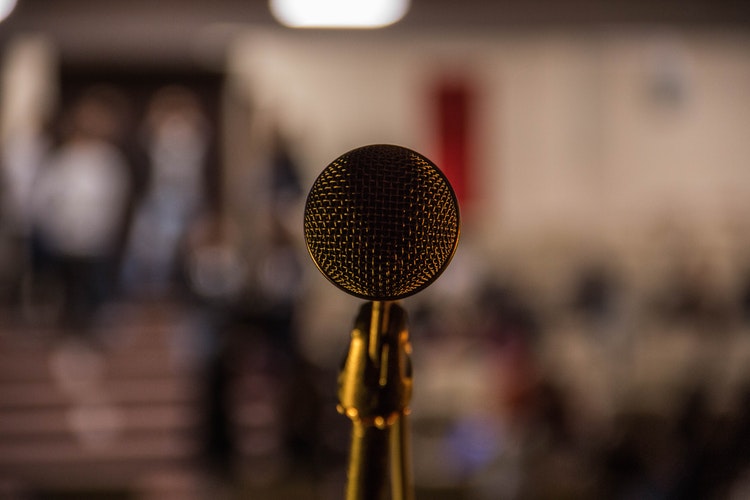
That makes total sense. I’m going to use that, rehearsed improv. This was such a really great conversation, Brian. Thank you so much for being on the show. We’d love to have you in the future and would love to have you share information. If people want to get a hold of you, how can they connect with you? I think you also have a gift for our audience as well.
I’ve got a download, it’s, 5 Common TEDx Mistakes (and what to do instead). Even if you’re not planning a TEDx Talk or you’re not planning on giving one, these are techniques and strategies and things to avoid in any presentation. Most of the things in this eBook are also applicable even if we’re not giving a presentation. If you’re a consultant, then you’re working with other people. These are things you can use. I’ve got a page for your audience on my website, if you go to BrianMillerSpeaks.com/TheMECEMuse, you will be able to grab that download right there. From there you can find me on social media and connect with me, email me, say hello, whatever you like. I think that page also has the TEDx Talk if you’re interested in seeing that and hearing that cool story. It will be a real value to your listeners.
Brian, as always, it’s been a pleasure. Go-getters, if you were looking for a coach, a speaking coach, Brian is the real deal. I really enjoyed working with you and I hope to work with you. I know there are other stuff coming with my talk, so I definitely look forward to working with you some more in the future.
This is a pleasure. Thanks so much for having me.
Thank you. Thank you, my go-getters, for tuning in. Here’s to your journey to greatness.
Links from today’s episode
- Brian Miller
- TEDx Talk – Christie Lindor TEDx Talk
- MECEMuseUnplugged@Gmail.com
- TEDx Talk– Brian Miller
- How to Magically Connect with Anyone TEDx Talk
- Ted.com
- BrianMillerSpeaks.com/TheMECEMuse
- Brian Miller’s social media
About Brian Miller
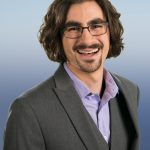 Brian got an early start in magic, securing his first professional gig at the early age of 14, when a local youth group offered to pay him for a magic show. The lightbulb went on when he realized that he could get paid to do card tricks, and from there his focus became singular.While attending school at the State University College of New York at Oneonta, Brian spent nearly every weekend on the road performing magic shows and stand-up comedy. He completed a dual Bachelor’s of Science in each Mathematics and Philosophy achieving a 4.0 GPA in philosophy with over 10 campus-wide awards for academic achievement and two international awards for presenting original work in philosophy. Straight out of undergrad, Brian received a Ph.D. offer in Philosophy of Language, but turned it down in order to pursue his dream of becoming a professional magician.
Brian got an early start in magic, securing his first professional gig at the early age of 14, when a local youth group offered to pay him for a magic show. The lightbulb went on when he realized that he could get paid to do card tricks, and from there his focus became singular.While attending school at the State University College of New York at Oneonta, Brian spent nearly every weekend on the road performing magic shows and stand-up comedy. He completed a dual Bachelor’s of Science in each Mathematics and Philosophy achieving a 4.0 GPA in philosophy with over 10 campus-wide awards for academic achievement and two international awards for presenting original work in philosophy. Straight out of undergrad, Brian received a Ph.D. offer in Philosophy of Language, but turned it down in order to pursue his dream of becoming a professional magician.
Brian quickly discovered that his act was a hit on college campuses and was soon touring nationwide in the campus activities market. He earned two nominations for “America’s Best Performer” (Campus Activities Magazine) by the age of 24.
Still bitten by the philosophy bug, Brian developed a lecture entitled, “Magic, Philosophically Speaking” that combined live magic demonstrations with a inquiry into three major areas within contemporary philosophy. He pitched it to philosophy and humanities departments throughout the Northeast and thus began his career in public speaking by way of academia.As Brian’s career grew he began receiving invitations to speak about magic and his success. In 2015 he was invited to speak at a tiny TEDx conference in Connecticut and, as they say, the rest is history. He has since shared his magic and his message with thousands of audiences in over thirty states and on four continents.
A passionate guitarist and singer, Brian spends his rare free time writing and recording original rock and pop music.
He lives in Connecticut with his wife Lindsey.
